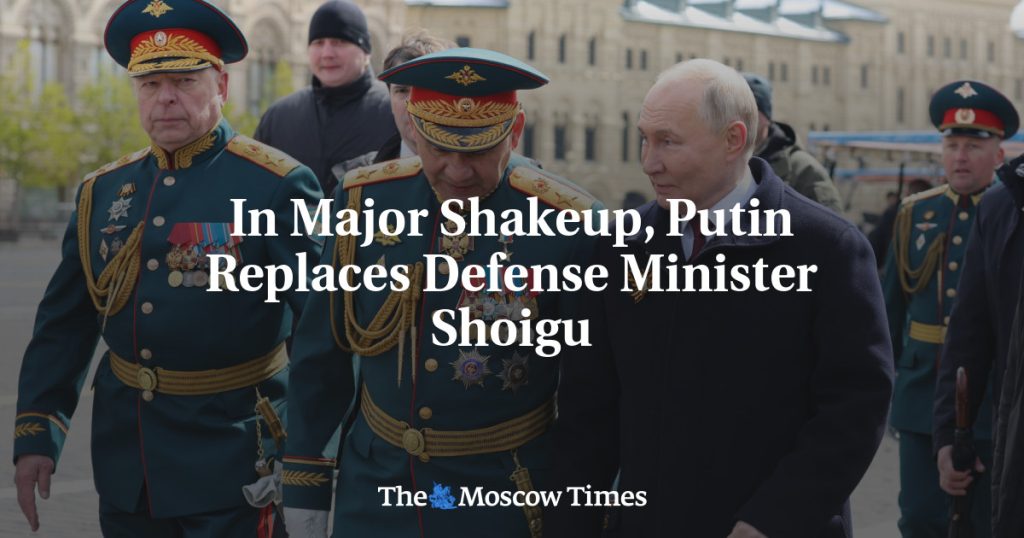President Vladimir Putin has nominated former First Deputy Prime Minister Andrei Belousov to replace longtime Defense Minister Sergei Shoigu in a major shakeup. Shoigu has been named secretary of the Security Council, replacing current head Nikolai Patrushev. The Kremlin decreed that Patrushev’s next role would be announced in the coming days. Kremlin spokesman Dmitry Peskov explained that President Putin decided a civilian official should head the Defense Ministry to promote innovation and economic competitiveness within the organization.
The decision to replace Shoigu with Belousov marks a significant change within the Russian government. The Defense Ministry is expected to prioritize embracing new ideas and creating conditions for economic competitiveness. Belousov’s nomination is a strategic move by Putin to lead the Defense Ministry in this direction. Shoigu will take on a new role as secretary of the Security Council, allowing for fresh leadership within the council. The reshuffling within the Russian government aims to strengthen and modernize key sectors, ensuring they remain competitive and innovative in the global arena.
The nomination of Belousov as Defense Minister and Shoigu’s transition to the Security Council reflects Putin’s vision for a more dynamic and forward-thinking approach to national defense and security. Belousov’s background as a former First Deputy Prime Minister suggests a focus on economic strategy and innovation within the Defense Ministry. Shoigu’s new role in the Security Council signals a continued commitment to national security and strategic planning under new leadership. The upcoming announcement of Patrushev’s next position will provide further insight into the restructuring of key government positions.
As a developing story, the reshuffling of key government positions in Russia highlights Putin’s ongoing efforts to modernize and adapt to changing global challenges. The decision to replace Shoigu with Belousov underscores the importance of innovation and economic competitiveness in the Defense Ministry. Belousov’s background in economic policy and government administration positions him to lead the Defense Ministry in a new direction. The transition of Shoigu to the Security Council signifies a shift towards new leadership and strategic planning in the security sector.
Overall, President Putin’s nomination of Belousov as Defense Minister and Shoigu’s new role in the Security Council represent a strategic move to streamline and modernize key government sectors. The focus on innovation, economic competitiveness, and strategic planning underscores the importance of remaining dynamic and forward-thinking in today’s evolving global landscape. The upcoming announcement of Patrushev’s next role will shed further light on the restructuring of key government positions and the ongoing efforts to enhance national security and defense capabilities in Russia. Putin’s decision to appoint Belousov and transition Shoigu reflects a commitment to adapt and respond effectively to contemporary challenges.















